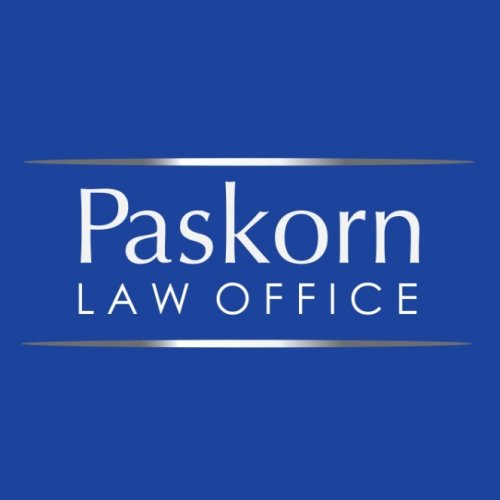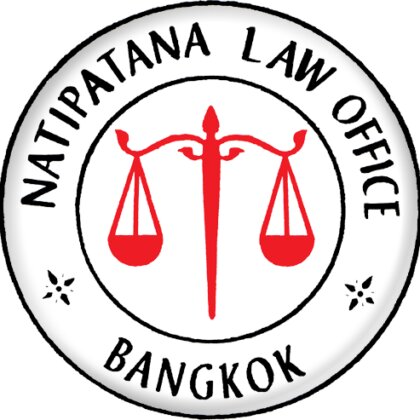Best Commercial Real Estate Lawyers in Phuket
Share your needs with us, get contacted by law firms.
Free. Takes 2 min.
Free Guide to Hiring a Real Estate Lawyer
List of the best lawyers in Phuket, Thailand
Legal guides written by SIAM LEGAL INTERNATIONAL:
- Defamation Laws in Thailand: Criminal Charges and Civil Suits
- The State of Thailand’s Long-Term Resident (LTR) Visa Program in 2025
- The Penalties Of Not Filing Your Income Tax Return As A Foreigner In Thailand
Thailand Commercial Real Estate Legal Articles
Browse our 7 legal articles about Commercial Real Estate in Thailand written by expert lawyers.
- 5 Common Legal Pitfalls in Thai Real Estate and How to Avoid Them
- Nestled within the paradisiacal landscapes and burgeoning economic dynamism of Thailand lies a high-stakes real estate market rife with both rapturous potential and formidable legal complexities. This idyllic Southeast Asian terrain has emerged as a globally-coveted destination for luxury residential developments, commercial property investments, and ambitious real estate endeavors spanning... Read more →
- How Foreigners Can Own Property in Thailand
- For foreigners considering property ownership in Thailand, understanding the process and relevant laws is crucial. These laws are not typically compared to the property ownership laws of other countries, as the Kingdom strictly regulates which foreigners can own property, the circumstances under which they can do so, and the types... Read more →
- Tax Implications of Buying Property in Thailand: A Comprehensive Guide
- You might be an expat in Thailand hunting for your next property investment, and interested in buying a condo in one of the world’s fastest-moving cities, Bangkok; or perhaps you’re an investor who is also in awe of the stunning and ever-popular vacation island of Phuket, or a retiree considering... Read more →
About Commercial Real Estate Law in Phuket, Thailand
Phuket, a renowned tourist destination, has seen significant growth in commercial real estate, driven by increased foreign investment and development. Commercial real estate in Phuket includes properties such as hotels, resorts, office buildings, retail spaces, and other business establishments. The unique dynamic between preserving local culture and heritage while accommodating modern developments adds a layer of complexity to real estate transactions in this region.
Why You May Need a Lawyer
Navigating the commercial real estate market in Phuket can be challenging due to the intricacies of Thai property laws and regulations. Key situations where legal assistance may be essential include purchasing or leasing property, negotiating contracts, ensuring compliance with local zoning laws, handling environmental regulations, and resolving disputes. Additionally, foreign investors often require guidance to understand ownership restrictions and investment incentives in Thailand.
Local Laws Overview
Commercial real estate transactions in Phuket are governed by a framework of national and local laws. Key considerations include the Land Code, which restricts foreign ownership of land, requiring innovative legal structures, like leasehold arrangements, to allow foreign investments. The Condominium Act allows foreigners to own up to 49% of the registrable area of a condominium. Zoning laws regulate land use to ensure urban development aligns with local plans. Environmental laws mandate certain assessments before development to protect Phuket's natural resources.
Frequently Asked Questions
What are the common ownership structures for commercial properties in Phuket?
In Phuket, common ownership structures for commercial real estate include freehold ownership by Thai nationals, leasehold agreements for foreigners, and setting up a Thai company where foreigners can hold an indirect interest.
Can foreigners own commercial land in Thailand?
Foreigners cannot own land directly in Thailand. However, they may lease land for up to 30 years, with two renewals possible making a total of 90 years. Establishing a Thai company with majority Thai ownership is another option.
What are the zoning regulations in Phuket, and how do they affect commercial development?
Zoning regulations in Phuket designate how land can be used, affecting what types of commercial developments can occur in specific areas. Developers need to check zoning laws to ensure their project complies with local plans.
How are property taxes determined for commercial real estate in Phuket?
Property taxes, including property transfer fees, specific business tax, and stamp duties, apply to commercial real estate transactions. The actual calculation depends on the property's value and type of transaction.
What are the penalties for non-compliance with environmental regulations?
Penalties can include fines, project delays, or revocation of project approval. Therefore, ensuring compliance with environmental assessments and regulations is crucial for developers.
Should a lease contract be registered for commercial properties in Phuket?
Yes, if the lease term is over three years, it must be registered at the Land Office to be enforceable, protecting both lessee and lessor rights.
How can a lawyer assist in a commercial real estate transaction in Phuket?
A lawyer can provide legal due diligence, draft and review contracts, ensure compliance with local laws, negotiate terms, and represent clients in disputes.
What are the risks of buying commercial property in Phuket without a legal advisor?
Risks include non-compliance with regulations, unfair contract terms, undisclosed property issues, and potential disputes, all of which could lead to financial loss or legal complications.
What are the common disputes in commercial real estate in Phuket?
Disputes often arise from breaches of contract, zoning violations, boundary issues, and disagreements over lease terms or construction defects.
Is title insurance necessary for commercial property transactions in Phuket?
While not common, title insurance can be beneficial in protecting against risks related to property ownership disputes, especially for foreign investors.
Additional Resources
Those seeking further information or assistance can refer to the following resources:
- The Land Department of Thailand: Offers guidelines on property registration and ownership laws.
- The Phuket Real Estate Association: Provides updates on market trends and professional advice.
- The Board of Investment of Thailand: Offers insights into incentives and restrictions for foreign investors.
- Legal firms specializing in real estate law: Can offer consultation and services tailored to specific needs.
Next Steps
If you require legal assistance with commercial real estate in Phuket, start by compiling relevant documents related to your transaction. Seek referrals for credible legal firms experienced in real estate law in Thailand. Arrange consultations to discuss your situation and ensure you understand the legal landscape before proceeding with any real estate dealings. This proactive approach helps safeguard your investments and facilitates smooth transactions.
Lawzana helps you find the best lawyers and law firms in Phuket through a curated and pre-screened list of qualified legal professionals. Our platform offers rankings and detailed profiles of attorneys and law firms, allowing you to compare based on practice areas, including Commercial Real Estate, experience, and client feedback.
Each profile includes a description of the firm's areas of practice, client reviews, team members and partners, year of establishment, spoken languages, office locations, contact information, social media presence, and any published articles or resources. Most firms on our platform speak English and are experienced in both local and international legal matters.
Get a quote from top-rated law firms in Phuket, Thailand — quickly, securely, and without unnecessary hassle.
Disclaimer:
The information provided on this page is for general informational purposes only and does not constitute legal advice. While we strive to ensure the accuracy and relevance of the content, legal information may change over time, and interpretations of the law can vary. You should always consult with a qualified legal professional for advice specific to your situation.
We disclaim all liability for actions taken or not taken based on the content of this page. If you believe any information is incorrect or outdated, please contact us, and we will review and update it where appropriate.
















